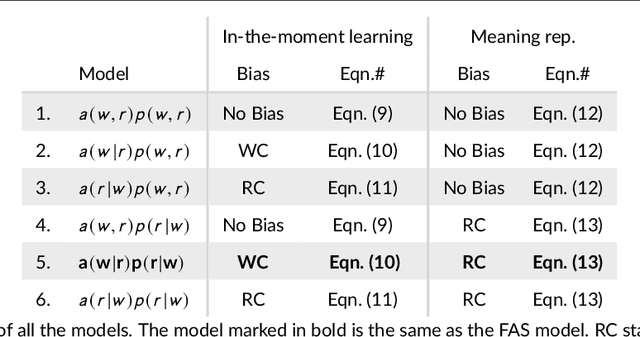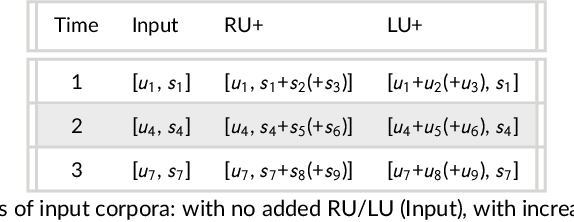Zahra Shekarchi
Competition in Cross-situational Word Learning: A Computational Study
Dec 06, 2020

Abstract:Children learn word meanings by tapping into the commonalities across different situations in which words are used and overcome the high level of uncertainty involved in early word learning experiences. In a set of computational studies, we show that to successfully learn word meanings in the face of uncertainty, a learner needs to use two types of competition: words competing for association to a referent when learning from an observation and referents competing for a word when the word is used.
A Computational Investigation on Denominalization
Feb 13, 2020



Abstract:Language has been a dynamic system and word meanings always have been changed over times. Every time a novel concept or sense is introduced, we need to assign it a word to express it. Also, some changes have happened because the result of a change can be more desirable for humans, or cognitively easier to be used by humans. Finding the patterns of these changes is interesting and can reveal some facts about human cognitive evolution. As we have enough resources for studying this problem, it is a good idea to work on the problem through computational modeling, and that can make the work easier and possible to be studied on large scale. In this work, we want to study the nouns which have been used as verbs after some years of their emergence as nouns and find some commonalities among these nouns. In other words, we are interested in finding what potential requirements are essential for this change.
 Add to Chrome
Add to Chrome Add to Firefox
Add to Firefox Add to Edge
Add to Edge